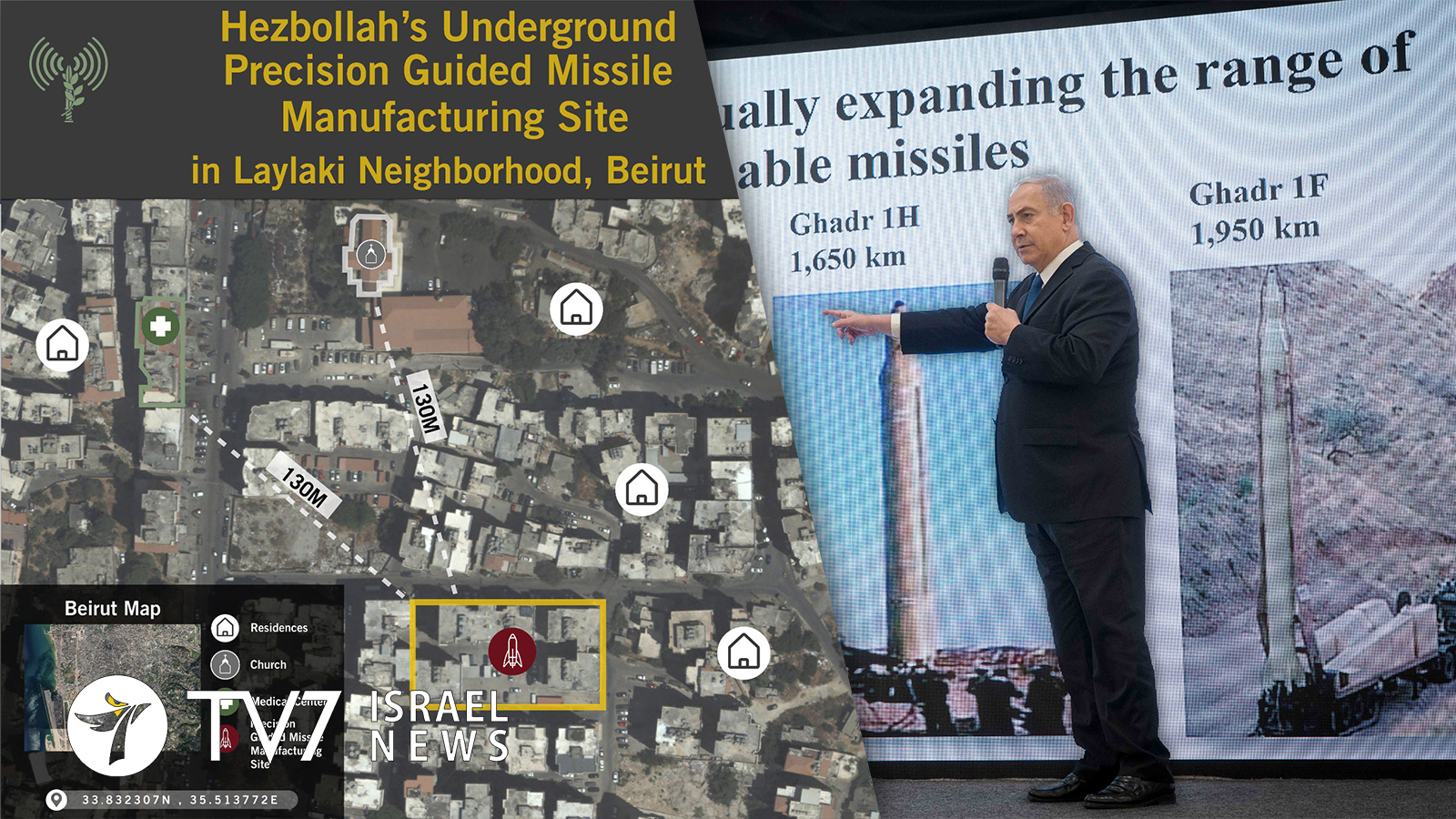Israeli Prime Minister Benjamin Netanyahu has accused the Lebanon-based Hezbollah terror group of storing weapons near a gas company in the residential Beirut neighborhood of Jnah.
During his annual speech to the United Nations General Assembly (UNGA) delivered in a pre-recorded video due to the coronavirus pandemic, Netanyahu warned the depot is “where the next explosion could take place.”
Lebanon is currently plagued by government turmoil, major financial meltdown and mass unrest. Hezbollah has been blamed for obstructing critically-needed reform. In addition, nearly 200 people were killed a massive 4 August blast at the Beirut Port, where authorities say highly explosive ammonium nitrate detonated after having been poorly stored for years. The Iran-backed Hezbollah movement denied any involvement in the explosion.
In remarks directly addressed to “the people of Jnah,” Israeli Prime Minister Netanyahu stressed, “You’ve got to protest this. Because if this thing explodes, it’s another tragedy.”
“Iran and Hezbollah have deliberately put you and your families in grave danger… You should tell them, tear these depots down,” declared Netanyahu.
He also displayed photographs he said revealed the entrance to a missile factory in Beirut, suggesting an Israeli intelligence asset provided it. He also presented a map with coordinates he said he reveals the clandestine Hezbollah depot.
The Israeli Defense Forces (IDF) has published photographs alongside a report claiming to “have exposed three Hezbollah Precision Guided Missile (PGM) manufacturing sites located in civilian neighborhoods in the heart of the Lebanese capital, Beirut,” which “are all either in or in close proximity to civilian buildings.”
The IDF went on to detail that one underground PGM manufacturing site was located in the Laylaki neighborhood beneath a seven-story residential building housing smore than 70 families, as well as a medical center and a church some 130 meters away. Another such site is based in the Chouaifet neighborhood below a five-story residential building where about 50 families live, with a mosque only some 90 meters north.
The third PGM manufacturing site is in the same Jnah neighborhood as mentioned by the Israeli Premier. It is in an industrial area situated immediately adjacent to one gas company with another just 50 meters away, as well as a gas station in a few dozen meters distance.
According to the IDF, “these PGM manufacturing sites, deliberately placed in the heart of populated areas in Beirut, put the lives of Lebanese civilians at risk. The disaster which occurred in the Beirut Port last August and the explosions in September showcase the extent to which the lives, the security, and the property of Lebanese civilians are at risk.”
The Israeli army further charged that “Hezbollah’s strategy to hide weapons and operate from civilian neighborhoods stems from its intentions to draw the IDF to target these civilian areas in times of escalation. If Hezbollah were to target Israeli civilians from these sites, the IDF would have no choice but to react—potentially placing Lebanese civilians in harm’s way—causing international outrage toward the IDF.”
Precision Guided Missiles are equipped with highly advanced navigation systems that enable them to strike targets within an accuracy of a few meters. Hezbollah, which fired heavy rocket barrages at Israeli population centers in the 2006 Second Lebanon War, would possess greater capability to inflict mass destruction with the PGM. IDF intelligence shows that “after several failed attempts to transfer ready-to-use PGMs between 2013 and 2015, Iran has been sending Hezbollah PGM parts to assemble in manufacturing and conversion factories in Lebanon.”
The Iranian proxy Hezbollah has long used Lebanese civilians as human shields, says the Israeli army. “In addition to placing PGM manufacturing sites in civilian neighborhoods, Hezbollah also places weapon warehouses in civilian areas across Lebanon. These sites have resulted in various explosions in populated areas over the last number of years—due to Hezbollah neglect. Most recently, on September 22, 2020, a weapons warehouse in the village of Ain Qana exploded, endangering Lebanese civilians.”
Netanyahu’s address to the UNGA is not the first time Israel has exposed Hezbollah’s arsenals of death. Both the government and the army have made innumerable reports on such sites to the UN and other diplomatic networks.
“In its decision to expose these three sites in Beirut,” the IDF said it “hopes to call the Lebanese government out again, with the support of the international community, to intervene in the matter. The IDF hopes to help Lebanese civilians protect themselves from the risks caused by the entrenchment of the Iranian-proxy Hezbollah in their country.”
The Israeli army also reiterated that it “will continue to extensively operate against these threats through various methods and tools to protect both Israeli and Lebanese civilians.”
Hezbollah leader Sayyed Hassan Nasrallah was quick to respond to the Israeli accusations.
“A short while ago, the enemy’s prime minister spoke directly in a speech at the United Nations, saying things in order to incite the Lebanese people against Hezbollah, as usual,” he said.
Nasrallah added that Netanyahu was trying to provoke the Lebanese against Hezbollah with accusations of secret missile sites in Beirut.
In addition, Hezbollah invited international and local media to tour a small factory in the Janah neighborhood, which it claimed was the same location as detailed by the Israeli leader and military. Journalists were shown some equipment but no weapons were in view.
